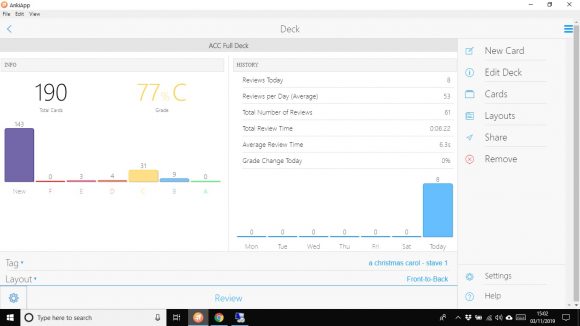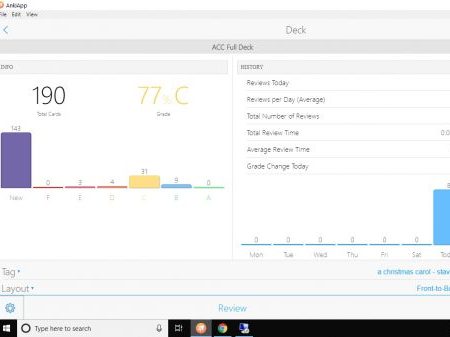We are entering a two mock cycle at our school. A full revision programme is underway; assemblies, revision packs, past papers, focused tutor groups delivering literacy and numeracy sessions*, revision planning sessions, post-it note mocks (live marking), walking-talking mocks, targeted support and that is before a programme of additional revision sessions is made available to Y11 students. It is comprehensive and committed.
As a co-tutor to a Year 11* tutor group, we are delivering proscribed tutor revision sessions which has led to discussions between us regarding the importance of addressing knowledge gaps, the benefits of retrieval practice / activities, and the differences between these two tasks. Which brings me to Adam Boxer’s excellent Retrieval Roulette, a quizzing tool that generates questions from set points in the curriculum to display on the board or print out. It has been a main-stay of my starter, settler, do-it-now, lesson tasks*. Often used as retrieval revision tool in it’s own right it is multi-functional, however the format is a little tricky at times and questions have to be grouped in the sheet. This could also work as a database. It can be student-led (print and share Q/A sheets, however I have predominantly led the task as the teacher). Setting aside the retrieval roulette for the moment…
(Note, that I am relatively nomadic. For at least half of my lessons I arrive with the students, from our previous lesson. I am logging in as they get set up. The other half, I teach in various rooms.)*
Mid week I observed a discussion that shared the lengths and strategies some teachers go to connect with their ‘low aspiration’ students. Not always, though often, students from our lowest attaining cohorts, soon to be part of the forgotten third. Students on the fringe of education or already disconnected. Much of the discussion focused on the importance and draining efforts to maintain high expectations,
…To be up tempo, enthusiastic enough for “us” both with high expectations – yes it’s demanding!
and second, the motivational power of experiencing success first hand discussed at more length here. So let’s pick up the Retrieval Roulette again.
All students can learn and the Retrieval Roulette is a great tool for building success-motivation-success momentum. As success builds, and seeps into, and positively influences, the climate for learning… the success culture of the class deepens and evolves. Success helps to repair the relationship some students have with learning (especially when quizzing is low-threat). However, I will note that you will need to be prepared to push on through the initial phase of student reservations associated with anything unfamiliar, new, or related to assessment, testing quizzing, emphasising and ensuring their intellectual safety and investment in learning / progress / knowledge building. Two reflections here. First, I let the quizzing routine get established (2 or 3 cycles) before formally taking in any score. In fact I am not sure taking in scores in important, other than showing the students you are interested in their progress. Second, employing a positive marking culture, where students are able to add/find the right answer before submitting scores, supports his culture.
Back to upping the Anki
Having written approaching two hundred questions for A Christmas Carol retrieval roulette, I wanted an even greater return on this investment (ROI) on top of using it as our routined lesson settler / do it now / reading and thinking task. Which brings me to Anki App.
First some Anki keywords.
- Anki – Japanese for memorisation
- Cards – Anki for ‘flashcard‘
- Deck – Anki for ‘a set of flashcards.’
- Review – Anki for – ‘memorise / practice / learn‘
- Tag – Anki for metadata defining Decks or Cards
- Layout – How the information is presented. (Front / Back or Back / Front).
- Fail: Hard: Good: Easy. – Anki terms used for self-assessing your performance on each card.
According to my login, I first used Anki App (Japanese for memorisation) three years ago. Anki is a cross-platform mobile and desktop flashcard memorisation app that utilizes spaced repetition to promote memorisation (perhaps is a better phrase than learning). As I see it, the reason I am interested in AnkiApp is that I see it as a personalised, learning, re-learning and revision tool. An effective one at that. The key feature is Anki’s algorithm for “high-efficiency learning,” which basically means the app learns how well you learn each Card, then prioritises those Cards you need to learn over those you do. You can see Decks by tags and if the individual Cards are tagged, you can also learn / memorise / revise specific subsets of knowledge / tags within a Deck. There are two main ways to Review the Decks. Either seeing the front of the Card followed by the back, question-answer, or Jeopardy style, back then front, answer-question style.
Then, after a Review session, you are serviced with an array of Deck analytics (number of reviews, overall grade, grade per card, retrieval time) that you can use to accelerate your memorisation (whereas the retrieval promotes retrieval strength).

You can import Decks directly from Quizlet (though these are not editable) and uploaded Decks via CSV files – eg your Retrieval Roulettes. And there is the connection. I saved my Retrieval Roulette question bank (with question tags) as a CSV UFT-8 file and uploaded it to (https://api.ankiapp.com/nexus/) (minus the column headings). Once imported you can share Decks via the app.
Forethinking
Web and mobile clients are both a blessing and a curse. On the one hand you have a mobile, on-the-go, retrieval practice with notifications. It is Martini revision – “anytime, any place, anywhere.” On the other, you have common issues and responsibilities of monitoring mobile devices and connectivity in class. Are students quizzing or merely distracted by other things? One extra positive – the App does not need connectivity once the deck is already synced and I am exploring the web version for in school. https://web.ankiapp.com/#/auth
Pitfalls – currently there is no admin-teacher-class overview as you might find in some proprietary software or products. You have no oversight of the students revision patterns or commitment unless they are logged in and show you.
Still to investigate – layouts, media (visual, audio and video?), how to use meta-data effectively.
Still – a very powerful retrieval / revision tool for self-disciplined, self-directed learners. I worked for 15 minutes yesterday with a Y11 student, he was able to see first hand his improvement after just six review cycles. I plan to spend more time investigating this approach via the web app and the mobile devices.
Update* The student continues to work with Anki, On 28 key questions from Stave 1 (chapter) Charles Dicken’s – A Christmas Carol, he has gone from 60% to 90+%. I am confident it is another case of success-motivation-success cycle.
Note: If you wish to use Anki across devices, eg web, app and PC app – you will need to upgrade – $10 a year or $20 for life.



Love Anki. Used Anki + “News in Slow Italian” podcast to teach myself GCSE-level Italian a few years ago.
Pingback: Success-motivation-success | KristianStill